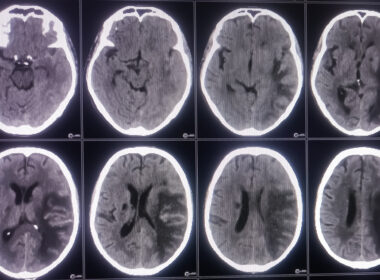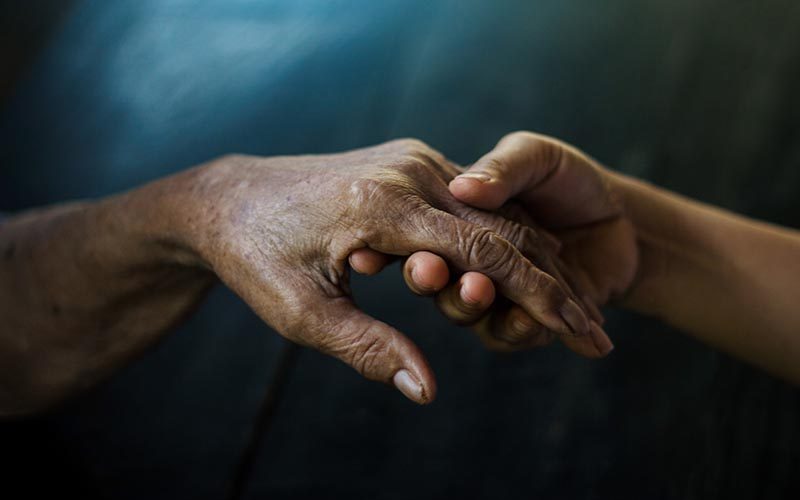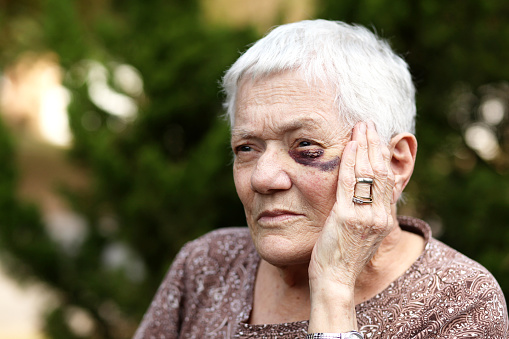Given the nature of their work, it’s no secret that nursing home workers are some of the most selfless individuals on the planet. They devote their days to caring for people who don’t have the strength to care for themselves, often putting their own personal needs secondary to those of their residents.
Unfortunately, not every nursing home worker is as selfless and kind-hearted as some nursing homes might have you convinced. There are numerous documented cases of abuse against residents in nursing homes across the US. and around the world.
In fact, the prevalence of elder abuse has risen over the last few years with the growing senior population. The National Center on Elder Abuse (NCEA) has spent decades providing information to help curb elder abuse and neglect. But despite its efforts, many families of nursing home residents still believe that it runs rampant today.
In this article, we go over why nursing home abuse reports are on the rise and how to report abuse in nursing homes to protect your loved ones.
What is Nursing Home Abuse?
Nursing home abuse is any action that causes or attempts to cause harm, either physically or mentally, to a nursing home resident. This can range from verbal abuse to physical abuse and even sexual abuse.
Sadly, countless cases of nursing home abuse go unreported, despite the fact that some possible signs of nursing home abuse such as unexplained injuries, poor care and hygiene, and malnutrition are hard to miss.
Nursing Home Abuse Statistics
With the growing number of the elderly in our society, it’s clear that long-term care is a growing market. The number of seniors in the U.S. continues to rise, with the population aged 65 and above expected to hit 80 million by 2040. This rising elderly population translates to increasing demand for assisted living and nursing home services.
Unfortunately, elder abuse is a malignant problem in many nursing homes and assisted living facilities across the country. There have been many reports of elder abuse ranging from neglect, financial exploitation, and emotional abuse, to sexual assault.
Here are a few elder abuse statistics to show it:
- Up to 5 million seniors are abused every year in the United States alone
- Approximately one in 10 Americans aged 60 and above have experienced some form of abuse but only one in 24 cases have been reported to the relevant local authorities
- Underreported cases of abuse may have been caused by several factors, including fear of retaliation by the offender, fear of shame or embarrassment, dependency on the caregiver, and cognitive impairment, among other issues
- Almost half of nursing home patients with dementia experience abuse or neglect
- Nursing home neglect reporting accounts for 14% of complaints against nursing homes
- There were 243 convictions for abuse or neglect in nursing homes and care facilities for criminal cases opened by Medicaid Fraud Control Units in 2020
Seniors can become easy targets for elder mistreatment and abuse. Many live in fear of being taken advantage of by caregivers, in which case, the abuse occurred but went unreported to the proper authorities.
Why is Nursing Home Abuse on the Rise? Factors that Contribute to Abuse in Nursing Homes
Although any form of abuse is inexcusable, it’s important to note that not all cases of nursing home abuse are the result of malicious intent. In fact, the vast majority of cases are due to the management, work culture, and personal issues that are often taken out on residents.
Poor Training and Recruitment Practices
The caregiver’s role in the abuse cycle is crucial, as they are often the ones who commit the abuse. We have all heard stories about a nurse or aide who has abused a patient in one form or another. And poor training and recruiting practices can put nursing home residents at an even higher risk of abuse.
Inadequate training often results in the recruitment of caregivers who are unfamiliar with the needs of seniors. When care providers don’t have the skills to handle difficult situations, they may resort to abusive behavior. They may shout at residents or use control tactics, like unnecessary restraint, to handle aggressive residents.
A recent study done to evaluate the effect of staff training on the quality of care proved that caregivers can significantly prevent avoidable harm when properly trained. The study also showed that properly trained staff could prevent other abuse-related signs such as fall rates, UTIs, Grade 2 pressure ulcers, accidents, and emergencies, among others.
Understaffing and Lack of Supervision
Understaffed nursing homes are more likely to have higher rates of abuse. Recent data by the U.S. Bureau of Labor Statistics showed that approximately 235,000 nursing home jobs (about 15%) have been lost.
It’s clear that there is a growing shortage of professionals in the nursing home care industry. This has forced the remaining caregivers to work harder in providing care to a greater number of patients.
Nursing homes require a higher ratio of nurses per patient to take care of the unique needs of each nursing home resident. But since many nursing homes have been understaffed for years, they have not been able to provide the appropriate level of care.
Additionally, caregivers in nursing homes are often overworked, overstressed, and sometimes underpaid. They have to juggle other responsibilities and obligations with no sufficient help, which can make their jobs even more challenging. As a result, their frustrations only end up on the residents.
Violent and Aggressive Resident Behavior in Nursing Homes
As much as we try to avoid it, violent and aggressive resident behavior in nursing facilities is also contributing to the increasing elder abuse cases. Nursing home staff members are trained to handle challenging or disruptive resident behavior. However, some nursing homes do not always have the luxury of using their training when overwhelmed by extreme violent behavior.
This results in a “mixed bag” of residents who may have vastly different health care needs, mental capacity, and social skills. Some residents are able to communicate and interact appropriately with staff, while others have lost their ability to communicate or function independently due to cognitive illnesses and mental disorders associated with aging.
When staff members are unable to work with these changes, it creates a breeding environment for abuse or neglect. When care providers are unable to handle violent nursing home resident behavior, they are at a higher risk of abusing residents.
Lack of Effective Monitoring and Supervision
A lack of transparency can make it harder to spot signs of elder abuse, but effective monitoring and supervision practices can help to minimize this. When staff members are actively monitoring and supervising residents, they can identify problems more quickly and respond more effectively.
In addition, supervisors and nursing home management can also identify cases of abuse with the constant monitoring and supervision of other caregivers.
Ask these questions when looking for a nursing home for your loved one:
- Is the facility clean and well-maintained?
- Are the staff members friendly and professional?
- Does the assisted living facility have enough staff members to meet the needs of all its residents?
- Are the staff members trained and qualified to meet the needs of the residents?
- Are the staff members being monitored and supervised effectively?
Types of Nursing Home Abuse
Abuse in nursing homes comes in several forms:
Neglect and Abandonment
Neglect occurs when caregivers provide poor care and supervision. It’s one of the most common forms of elder abuse in nursing homes. Neglect often manifests in the form of poor hygiene, broken bones (e.g. when residents fall off their beds), nutritional deficiencies, and lack of social stimulation.
Abandonment occurs when a nursing home fails to watch over the resident, resulting in poor care. This can include situations where a resident is left alone in their bed for long periods without proper supervision and is unable to call for help; or, a resident suffering from dementia left to wander alone and eventually hurt themselves.
One incident occurred in 2015 when Ms. Hart was left alone and broke her shoulder after tumbling down from her wheelchair. On a different occasion, she had also been left alone and wandered off to the facility’s parking lot where she broke her nose on the cold hard pavement. It was not until thirty minutes later that she was found in this state – Source: The New York Times.
Physical Abuse
Physical abuse occurs when a caregiver deliberately hurts a patient, either by hitting, kicking, or applying excessive force to certain areas of the body (e.g. when moving them). Physical abuse can also involve violent restraining of residents.
There are plenty of warning signs that may indicate physical abuse:
- Unexplained injuries – Bruises, cuts, open sores, dehydration, malnutrition, weight loss, and bedsores may be the result of physical abuse
- Unnecessary restraints – Using restraints as a form of punishment, or without sufficient cause is a sign of physical abuse
- Sudden negative changes in a resident’s behavior – Residents who normally adhere to the facility’s rules suddenly become aggressive or defiant may also be an indication of physical abuse
- Other signs such as torn clothing
Sadly, there have been hundreds of complaints of physical elder abuse in many nursing home facilities (with some residents’ family members resulting to capture evidence on hidden cameras).
Unfortunately, these cases often go unnoticed and unreported and may end up in more physical and emotional harm to the victim and their family members.
Financial Abuse
Financial abuse occurs when a caregiver uses a resident’s funds for their own personal benefit. This may include the fraudulent use of the resident’s credit card or the misuse of a bank account.
Some signs of financial abuse include:
- A sudden change in the resident’s financial well-being
- A sudden decrease in credit card use or withdrawal of large sums of money from the resident’s bank account can indicate financial abuse.
- Missing or altered financial documents – Missing checks, ATM receipts, or credit card bills
Sexual Abuse
Sexual elder abuse is a less common form of abuse, but it is no less serious. Sexual abuse can include anything that forces a resident to engage in sexual activity they do not want to engage in. For instance;
- Groping
- Sexual comments
- Taking nude photos or videos without consent
- Rape, and other sexual abuse
In some cases, sexual abuse may go a step further and result in rape (as highlighted in this CNN article). While sexual abuse is a less common form of abuse in nursing homes, it is still important to be aware of it in case it does happen to a loved one.
Sexual abuse is often harder to detect than physical abuse because it can be more discreet.
Psychological Abuse
Psychological elder abuse is also not always as obvious as physical abuse. Psychological abuse can stem from:
- Denying the resident the opportunity to talk with friends and family members
- Not allowing a resident to participate in activities they enjoy or find comforting
- Denying a resident the right to make their own decisions
- Verbal abuse
Since psychological abuse is much harder to identify, it’s important to keep an eye out for any signs of psychological abuse. Some of the possible signs to look for include:
- A change in a person’s personality or behavior
- Apathy towards life
- A reluctance to talk about their time in the nursing home
If you notice your loved one is beginning to act differently, it’s important to talk to them. If a resident is being psychologically abused in a nursing home, they may not be able to tell you that something is wrong. That’s why you should spend more time with them and talk about their experience.
While there is a lot of sensitive information about the different types of abuse in nursing homes, there is also a lot you can do to keep a loved one safe. If you know a loved one is planning on moving into a nursing home, it’s important to do your research so you can find a safe place for them.
It’s also important to keep in touch with your loved ones and check in frequently to make sure they are safe and being treated well.
How to Prevent Nursing Home Abuse
In the same way that children need to be taught about signs of immediate danger, an older person and their family need to stay informed about abuse in a nursing home. As mentioned earlier, long-term care facilities are prime environments for mistreatment to occur. The combination of advanced age and reduced independence makes most elderly people easy targets for anyone looking to exploit them.
These factors, combined with the fact that many potential victims are unable to advocate for themselves, mean that other caregivers who are willing and able to take advantage almost always will. There is some good news, though: because it’s so common, you can start by learning how to report nursing home neglect and other forms of abuse to protect your loved one from being mistreated.
Check Out the Nursing Home Beforehand
Before you place a loved one in a nursing home, take time to check it out. You don’t have to do an in-depth inspection, but you do want to spend enough time there to get a sense of the overall atmosphere.
- Is the facility clean and well-kept?
- Are the staff members friendly, professional, and attentive?
- Do other residents appear happy and content?
If you’re concerned about the home’s conditions or the way the staff treats its residents, don’t be afraid to seek out as much detail as you can or bring up your concerns. If you’re met with defensiveness or a hint of hostility from the management, you may want to consider looking into other homes.
Make Sure the Staff Get Proper Training on How to Care For the Elderly with Dementia
Seniors with dementia are especially vulnerable to abuse since they often have trouble communicating their needs and desires. Some living facilities are better than others at caring for these patients, though. If you know that your loved one will eventually need to be placed in a nursing home, check to see if the staff there is properly trained in dementia care.
If they aren’t, find another facility. It’s important to note that even long-term care facilities that employ the best staff members may not always be able to entirely prevent mistreatment and abuse among dementia patients. But the best facilities will always work hard to minimize these issues.
Be Proactive About Communication Between Staffers And Families
If you or your loved one is living in a nursing home, be proactive about communication. You may be so busy at work that you don’t have time to regularly visit, but that doesn’t mean you shouldn’t periodically call them and ask how things are going.
If you’re greeted with vague answers or excuses as to why things aren’t up to standard, don’t be shy about pressing further. Be polite, but be firm. You have a right to know what’s going on with your loved one, and you have a right to complain about issues that are impeding their care.
Check for Signs of Physical Abuse
As a general rule, if you have any reason to believe that your loved one has experienced nursing home abuse at the facility they’re staying, you need to report it as fast as possible. Physical abuse is one of the most common forms of mistreatment in nursing homes, but it’s also one of the easiest types of abuse to detect.
Reporting Nursing Home Abuse Cases to the Relevant Authorities
All states have agencies dedicated to investigating elder mistreatment, abuse and neglect cases in nursing homes. You should always report nursing home abuse the moment you spot it. This might seem a little bit intimidating if you’re worried that reporting abuse will attract further mistreatment of your loved one.
However, reporting nursing home abuse is often the first step to ending the cycle of mistreatment. Below is a list of the authorities willing to listen and respond to elder abuse cases:
- The nursing care institution’s management
- The nursing home ombudsmen
- APS (State’s Adult Protective Services)
- Long-Term Care Ombudsman program branch in your state
- The police
- Use the Eldercare Locator to find other services for elderlies
- Other human services such as The Administration for Community Living
Nursing Home Abuse Reporting Requirements
You must always report nursing home abuse immediately to the state agency and local law enforcement so that immediate investigations can begin. Next, it’s important to gather more facts about the incident and who was involved. Contact your attorney for your free case review and more help with gathering evidence against the offenders.
Learn more about how to report abuse in nursing homes here. In case of a serious fall or injury, seek immediate health services.
If you’re not sure how to report nursing home abuse, you can always start with the facility’s management first, the APS, or the Long-Term Care Ombudsman program. They will investigate reports and your loved one will benefit from the outcome: they’ll be safer and more secure in their environment.
However, if you’re not satisfied with the internal investigation, seek legal help.
Elder abuse attorneys can help speed up the process, investigate suspected abuse, and bring the offenders to justice. In fact, some offer a free legal case review so you don’t have to pay anything on your first step to justice.
Taking legal action against the offender can help seek justice in form of financial compensation, jail time for the offender, and immediate action against the institutions. This way, you can also help other seniors who might be suffering from similar abuse.
Conclusion
Nursing home abuse cases are on the rise, but the good news is that they can be minimized by creating awareness, holding the institutions accountable, and reporting abuse cases to the relevant authorities. If you suspect that a loved one is being abused in a nursing home don’t be afraid to report it to the authorities.
Also, visit the National Center on Elder Abuse (NCEA) website to learn more about elder abuse.












